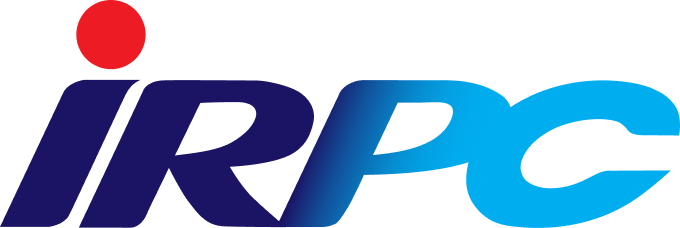


To complement the Corporate Governance Policy and Corporate Governance Handbook which forms the foundation of our governance framework, IRPC launched additional policies, including the Anti-Corruption Policy and Compliance Policy to underscore our firm commitment to upholding business ethics and integrity in all aspects of our management practices.
The Corporate Governance and Sustainability Committee is tasked with monitoring and overseeing management practices to ensure compliance with good corporate governance principles. This includes tracking the efficiency and implementation of the Anti-Corruption Policy and other policies relevant to Good Governance, Risk Management, and Compliance Management (GRC).
To ensure that the company has an appropriate and effective internal control system in place, the Audit Committee is responsible for monitoring the company’s business operations to ensure compliance with IRPC’s Corporate Governance handbook and the relevant laws and regulations. In addition, IRPC engages with an external independent audit committee to conduct thorough and meticulous investigations within the scope and authority defined by the Board of Directors.
Code of Conduct
Our company values, principles, and guidelines on business code of conduct are outlined in our Corporate Governance Handbook. Recognizing the importance of ethical business conduct, IRPC has integrated business ethics as one of the key elements in our Corporate Governance Policy, including definitions and guidelines on its application in our day-to-day operations. At IRPC, business ethics covers the following key aspects.
- Responsibility to shareholders
- Relationships with customers and the public
- Relationships with suppliers, business competitors and creditors
- Responsibility to employees
- Responsibility to society and the environment.
IRPC requires that all employees complete acknowledgement and conformity forms, which are then submitted to the Office of Corporate Affairs. Moreover, IRPC has organized awareness campaigns and educational activities, such as corporate governance workshops, new employees’ orientation, PTT Group CG Day, IRPC CG Day, IRPC CUBIC Academy Season, No Gift Policy and Anti-Corruption campaigns, training courses, and periodic reviews via the e-learning system to communicate and promote compliance with good corporate governance principles and business code of conduct.

Remark: Anti-corruption is covered in IRPC’s training and communications regarding the organization’s ethics and business code of conduct, and the percentage presented represents the total coverage of this topic in our communication and training efforts.
In addition, IRPC distributes Corporate Governance Handbook principles and guidelines to business partners, joint ventures, and entities in which IRPC holds shares of less than 51%, as well as other business associates. For joint ventures, IRPC requires joint ventures to maintain their own code of conduct, which should be at least equivalent to IRPC’s Corporate Governance Handbook. In instances where a joint venture lacks its own code of conduct, IRPC mandates the adoption of IRPC’s Corporate Governance Handbook by our joint ventures.
Compliance System
IRPC has consistently adopted the integrated Governance, Risk Management/Internal Control, and Compliance (GRC) framework in our management approach. This comprehensive approach enables the company to effectively identify, assess, and mitigate risks while ensuring adherence to all applicable laws and guidelines. To ensure seamless implementation, the company has also established a GRC working group to actively engage in activities aimed at promoting better understanding and integration of GRC principles among employees, with dedicated help desks and focal points assigned for assistance. Activities relating to GRC were reported to the GRC committee every two months and to the Corporate Governance and Sustainability Committee every quarter.
Anti-corruption
The company is committed to eliminating corruption, bribery, and coercion in all forms by building knowledge and promoting understanding among personnel at all levels and throughout the supply chain. The Board of Directors has set out concrete anti-corruption policies and practices, such as anti-graft, anti-corruption, anti-bribery policies, and no-gift policy. These policies are applicable to all IRPC and IRPC Group personnel, with training and occasional campaigns implemented to raise awareness. IRPC also expands the anti-corruption network to include stakeholders, such as other IRPC Group companies, joint-venture partners, and contractors.
In addition, the Audit Committee incorporates corruption risk management and assessment into its corporate internal audit agenda, covering all IRPC business activities. The assessment identifies significant risks in operations, procurement, contract management, and interactions with government officials, all of which are included in the Corruption Risk Profile along with defined preventive measures. The Committee also requires that corruption risks—including bribery, facilitation payments, bid rigging, and conflicts of interest—are controlled, monitored, assessed, and regularly reported to the Board to ensure transparency and accountability across all levels of the organization.
Reporting on Breaches
IRPC strictly implements the defined code of conduct, with designated units responsible for clear execution. Help desks and channels for complaints and grievances are provided to all internal and external stakeholders, alongside clearly defined, unbiased, and transparent investigation and resolution processes. Both internal and external stakeholders can directly communicate with the Chairman of the Audit Committee and Corporate Governance and Sustainability Committee through various whistleblowing channels, including telephone, company website, email, and PO Box. The company accepts submissions about any activity that violates the law or code of conduct, or any corrupt practice or inappropriate conduct of any person at any level, from directors, executive officers to employees of IRPC or subsidiaries, stakeholders, or parties related to IRPC’s businesses Additionally, measures are in place to protect whistleblowers and relevant witnesses in accordance with the commitment stated in the Whistleblowing Policy.


All complaints are directed at the Internal Audit Office for initial screening. If unrelated to corruption, they are forwarded to the Complaint Screening Committee, who will conduct a preliminary evaluation, gather evidence, prepare a report for the CEO and relevant committee, and update the complainant on progress as per company procedures. If a complaint concerns corruption, the Internal Audit Office will handle it and take further actions, along with gathering evidence and reporting directly to the Audit Committee and Board of Directors. The Internal Audit Office will determine the complaint’s merit and may appoint an investigation committee. If it is found that a wrongdoing has been committed, disciplinary actions will be taken against the offender according to the company’s regulations. The company also summarizes complaint data, analyzes causes and risks, and reviews them to determine additional appropriate control processes.
IRPC has enhanced the rules on handling complaints and whistleblowing of IRPC and subsidiaries to make sure they are aligned with the corporate governance principles and internationally accepted standards. This effort also involves gathering feedback from stakeholders and incorporating it to enhance the company’s whistleblowing process and system.

In 2024, IRPC received a total of 23 cases through the whistleblower system, including 19 related to performance, behavior, and suggestions, and 4 cases involving non-compliance with the company’s code of conduct on corruption. No case was identified as causing significant damage. Out of the 23 cases, 14 have been resolved, with resolutions including 0 case of verbal warnings, 1 case of official written warnings, and 0 case of contract terminations. The responsible functions have been notified to provide preventive measures, for example, to raise awareness on corporate culture and desired behavior, to build good relationship in each function through activities, to conduct “feedback” session for employees and their subordinate to make open minded conversation, and to conduct the Corporate Governance, Business Ethics and Compliance awareness raising training program, periodically.
|
|
Complaint Channel | Type | Preliminary
investigation |
Case status | ||||||
| E-mail & Postal | PO Box 35 | Website | Supervisor |
|
Corruption | Completed | Ongoing | Resolved | In progress | |
| 4 | 9 | 2 | 8 | 19 | 4 | 20 | 3 | 14 | 9 | |
| total | 23 (100%) | 23 (100%) | 23 (100%) | 23 (100%) | ||||||
| % | 17 | 39 | 9 | 35 | 83 | 17 | 87 | 13 | 61 | 39 |
Consequence of Breaches
IRPC has defined penalties in case of legal or regulatory violations in a fair and transparent manner in all circumstances. The Internal Audit Committee and relevant business are responsible for reviewing and reporting incidents to the Audit Committee and the Board of Directors, as well as to related departments, in the sequence specified in the Complaint Management Procedure.

